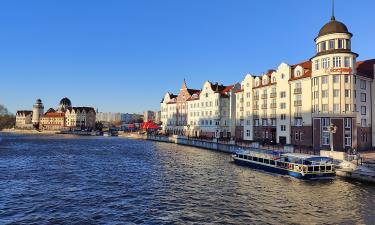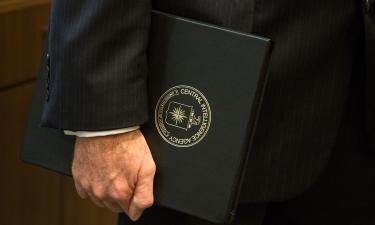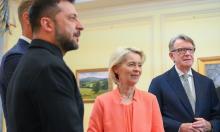Diplomats smooth over OSCE cracks in Maastricht, but for how long?
 The 11th session of the OSCE Council of Ministers in Maastricht may seem to have been a success to a detached onlooker thanks to the amazing gift of diplomats to fight amongst themselves intelligently and politely. Moreover, a very good document was adopted at the session: "The OSCE Strategy to Address Threats to Security and Stability in the 21st Century." The document reportedly outlines the main security priorities, gives a precise definition of the threats and risks in the 21st century, and so on. The only thing left to do is work in keeping with this document and then Europe will have no problems.
The 11th session of the OSCE Council of Ministers in Maastricht may seem to have been a success to a detached onlooker thanks to the amazing gift of diplomats to fight amongst themselves intelligently and politely. Moreover, a very good document was adopted at the session: "The OSCE Strategy to Address Threats to Security and Stability in the 21st Century." The document reportedly outlines the main security priorities, gives a precise definition of the threats and risks in the 21st century, and so on. The only thing left to do is work in keeping with this document and then Europe will have no problems.
However, they still exist for the time being. The two days in Maastricht amounted to perhaps the most crucial OSCE session in the organisation's history. It was obvious that unless the OSCE changed its style and approach, it would degenerate completely into a venue for total twaddle.
Russian diplomacy has always looked at the OSCE with tender hope, believing its structure and line-up of nations to be the ideal for solving European problems. It has 55 member countries, including the whole of Europe (not just the EU with its members, old and new), the US (undoubtedly an important player in European politics), former USSR republics (Kazakhstan and Turkmenistan), and finally Canada. Furthermore, this tender hopes were based on the idea that problems theoretically could be solved within the organisation on equal terms, without any humiliating divisions into "genuine Europeans" and "second-rate Europeans." Owing to the fact that everyone is equal in the OSCE, again theoretically, decisions are taken by consensus.
However, the reality has proven to be far worse. Let us look at the problems that the diplomats in Maastricht had to diffuse to avoid a scandal or, even worse, a fight.
The Moldova and Georgia issues were among those discussed. Having derailed a peaceful settlement in Moldova, the OSCE insisted only on a withdrawal of Russian troops from that country, regardless of whether or nor this suited the parties involved in the conflict. Its position on Georgia is much the same: the main thing is to minimise Russia's influence. The rest is unimportant. By following this approach, the OSCE has proved incapable of doing anything positive in these two countries for years, and, in general, most of its peacekeeping actions have failed. Now we can see why.
There also are the Baltic countries, where the Russian population faces discrimination, but in this case the OSCE makes an exception in the European understanding of human rights. And finally, there is the stubborn desire to delay the ratification and implementation of the Agreement on the Adjustment of the Treaty on Conventional Armed Forces in Europe (CFE). Thepointisthat without this document, Russia cannot station its armed forces and armaments in certain zones, while this is perfectly acceptable for the enlarged NATO. This evokes quite alarming thoughts.
All this is occurring against the backdrop of problems between Russia and the European Union: the EU's obstinate position at WTO accession talks to try to ensure that Russia's domestic gas prices are raised several times over and its similarly stubborn unwillingness to admit the fact that EU membership for East European countries creates purely technical problems for their trade with Russia, and so on. But, in general, it must be admitted that the process, which is called in Moscow "the creation of a united Europe without dividing lines," is continuing, albeit in fits and starts. However, it has now stalled again.
No one slammed the doors shut this time. The reason is that decisions on reforming the OSCE were made in Maastricht and there is a chance that it may start working in a different way. In any case a bad OSCE is better than no OSCE at all. But one has to understand clearly that all the problems facing this organisation have emerged because of the differences in attitude towards the OSCE between many EU members and Russia. The former see it as an additional branch of the Union, that is, of "real Europe", solving the problems of Eastern Europe which is unfortunate and not genuine Europe. It is an organisation where, contrary to its Charter, some members are more equal than others. And the "more equal" ones perform an important mission, teaching the second-rate Europeans how to live properly and making every effort to deliver them from Russia's influence. Real Europe simply gives the OSCE no funds for accomplishing other tasks.
This aspect became obvious in Maastricht with regard to all the above issues. And since nobody expects consensus to be reached in this case, the organisation will continue its pathetic existence. Herein lie the roots of OSCE's impotence and its reputation as a forum for empty talk.
There is no sense in becoming angry with such an organisation. It merely reflects European realities. On the one hand, Eastern Europe is drawing closer to the West -Moscow's diplomatic efforts with regard to Europe provide numerous examples of this. On the other hand, there has been an idea in Europe for centuries, and perhaps it will persist in future as well, that Russia, the largest state of the continent, is something alien and dangerous and, therefore, has to be restrained.
However, over all these centuries Russia has harboured the illusion that some day in will find itself in Europe's embrace. Quite an explosive mixture, one has to admit.
Dmitry Kosyrev, RIAN
Subscribe to Pravda.Ru Telegram channel, Facebook, RSS!




